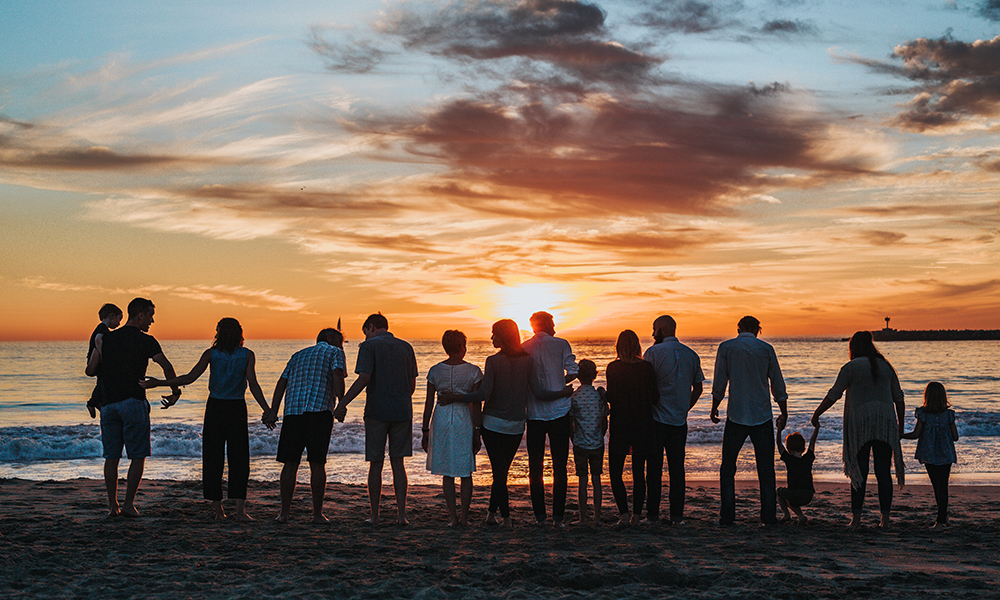
Insights from Dr. Edith Eger:
Dr Edith Eger, eminent psychologist and Holocaust survivor, understood meaningful relationships. She wrote, after having a child, that she had a new direction for her life. “This is what I will stand for. My commitment to her will be complete. I can see my purpose. “I will live to ensure that she will never experience what I did. The continuity from me to her, will grow out of our shared roots, making a new branch, a limb that climbs toward hope and joy.”
Dr. Eger uncovered her new purpose, put together a plan to live that purpose, and made great progress in achieving her goal of creating a meaningful relationship with her child.
My Research on Meaningful Relationships:
To help you make progress on your unique path, I want to share useful advice on meaningful relationships that I found in my research, mixed in with my thoughts. Consequently, I hope you find it inspiring and motivating.
I believe that most of us would agree that relationships with family and close friends are one of the greatest sources of meaning in life. So, if this is a purpose for you, then make a plan to do what it takes to make it a reality in your life.
- Consider what your friends and family need from you, not what you need from them.
- Find someone you want to make happy. Someone whose happiness is worth devoting yourself to. Sacrifice yourself to help that person succeed and be happy. Sacrifice deepens our commitment.
Clayton Christensen:
According to Clayton Christensen in his book How Will You Measure Your Life, he tells us to ask ourselves “what job does my spouse/friend/child most need me to do?” Then, devote your time and energy to doing that job. In addition, sacrifice some of your time and energy to do this for them.
Emily Esfahani Smith
In a Gottman Institute article written by Emily Esfahani Smith, she states “the secret to a meaningful life is meaningful relationships. And that “the meaning of life is to make other people’s lives more meaningful. additionally, she also tells us that “it is important to let others know that they are heard, seen, and appreciated. That they matter to us.”
Matt Mignona
In an article written by Matt Mignona on the website wholelifechallenge.com, he writes that “meaningful relationships help you thrive. In fact, meaningful relationships pose a number of benefits: improved mental health, decreased mortality rates, better perceived well-being, higher self-confidence, broader perspectives and understanding, increased resilience, and more.”
Meaningful relationships might be the healthiest thing you can do during your lifetime. Nonetheless, please know that it takes effort to create and maintain these relationships. However, it is easy, in today’s world, to become distracted by electronics or telling yourself that you are too busy.
Mignona lists these as “active listening, self-expression, forgiveness, presence, kindness, compassion, and the ability to make the others feel important. All of these skills can be developed. Nobody is inherently and permanently bad at being a friend. You have to want these meaningful relationships and commit to them.”
Tips to create more meaningful relationships:
- The heart is just as fragile at 70 as it is at 17. The vulnerability, the passion, the longing. Falling in love never gets old. And we can still get our feelings hurt no matter your age.
- Be open and willing to accept the help or advice offered from friends and family. It shows you value their opinion and respect their knowledge.
- Learn to understand non-verbal communication, which is more important than the words said as an indication of feelings and emotions. Don’t take people’s words literally and only at face value. Learn to understand subtext to read people better.
- The quality of our relationships directly affects our careers and financial life, our family life, our identities, our resilience, our sense of belonging and purpose. Social intelligence is a skill that can be learned and improved.
- The ultimate goals of conversation are either enjoyment or the transmission of information. Not to create a battleground or show off how much you have to say. Want to create connections and flow with other people.
- Act with empathy. Think more about others in our world and less about ourselves. Ask questions, paraphrase, and be an active listener. Look for what unites, not what divides. We are likely to have some similarities. We are not the center of the universe. You have to want to do this to get good at it and to develop many meaningful relationships.
- We all make big mistakes and have insecurities. Don’t fear discussing these with friends. Our friends will like us just the way we are.
- Old friends can provide insight into earlier versions of ourselves – what once mattered and what we used to enjoy.
- You can have a variety of friends – you can be intellectual with one, adventurous with another, more political or family oriented with others.
- Humans have a strong need to belong through relationships, social groups, or networks.
What would you add to this list? Please comment below. Also, please view other great posts on my blog.
Live your purpose and dream big, Jay